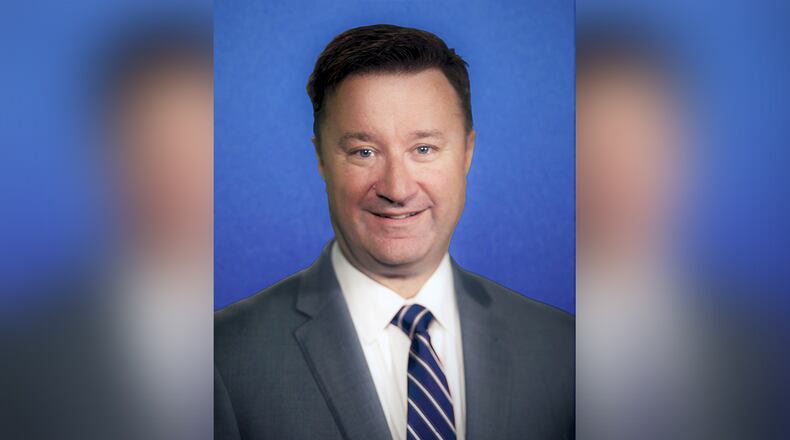Jonathan Patterson won’t have a honeymoon period when he takes over as superintendent of Fayette County Schools in October.
Instead of spending time sitting in classrooms getting to know students, gabbing with cafeteria workers over school lunch or cheering on the district’s football teams as they take on rivals, his first responsibility will be to keep everyone safe from a deadly pandemic.
“It’s definitely a unique time to transition,” said Patterson, who was tapped for the top job last week. “For anyone who’s in a leadership position, whether it is a school district or a hospital system or county government, this is a challenging time.”
That means he’ll mix discussions about hitting curriculum benchmarks with how well students are following the district’s mandate to wear masks because of the coronavirus. Confabs with principals will focus just as much on students sitting six-feet apart as it will on who’s likely to end up on national scholar lists.
Students in Fayette County, one of metro Atlanta’s wealthiest communities and highest-achieving districts, went back to school Aug. 1 with both in-person and virtual classrooms. The district has around 20,500 students. Patterson will be paid $240,000 annually.
As navigates his first few weeks getting to know his new community, he answered a few questions from The Atlanta Journal-Constitution.
Question: Tell us a little about yourself.
Answer: I’m a husband and father of two. I’m a former high school science teacher, assistant principal, principal of a middle school and a high school and worked as an associate superintendent for curriculum and instructional support. I’m a big proponent of good schools build good communities and good communities build good schools.
Q: What attracted you to the job?
A: There are very few school systems like Fayette County when you look around the nation. The team of principals and teachers has a great academic track record. This is not a turnaround situation. This is a choice location where people choose to live here because of the schools.
Q: How did working for Gwinnett County Schools, the biggest school system in the state, prepare you for being a superintendent?
A: Gwinnett is a high-performing district like Fayette, with great principals and great teachers. It has a stable board of education and superintendent. My last principal position in particular at Norcross High School was great because it was a dynamic and diverse community. There are obviously challenges no matter where you go, but it’s all about the focus being on our students.
Q: You are taking the reins as a first-time superintendent during a pandemic. Did that decision keep you up at night?
A: It’s definitely a unique time to transition. For anyone who’s in a leadership position, whether it is a school district or a hospital system or county government, this is a challenging time. What has encouraged me is how this community has pulled together. That’s important for anyone coming into a new community like myself. Most importantly this is a challenging time for our parents and students. They want to be in school, they want to see their teachers. I think people have been very patient and understanding as well as optimistic about being able to get back in school for two days a week. That’s not optimal for anyone but that’s a good place to start right now.
Q: Fayette County started the school year with some students electing to receive all-virtual instruction while others attend class in-person two days a week before returning home for at-home course work. What do you think of the plan and will you continue it?
A: I think it’s a great plan. I think it’s working. I know teachers want students every day and that’s the goal. But we have to do it in a way that is strategic, that’s smart and keeps everyone safe. I’m very appreciative of all the planning that’s happened and the collaboration that’s happened between the health community and the parents and the schools. But it’s still early and we’ll want to look at things from a measured perspective and make sure we have good opportunities to get feedback from parents, teachers and stakeholders along the way.
Q: Some education experts worry educational quality will suffer because of inconsistencies in instruction. For instance, some days are virtual, others are in person. Some students may miss weeks of class if they are infected or if they expose others, forcing quarantines. How do you address that?
A: It is different, but our teachers are professionals and they are going to make sure our students are progressing. They know where their students are academically. They will still know if a kindergartner is at the right reading level or that they know their numbers. Every age has its benchmarks and our teachers are aware of those and what they need to do to get students to meet them. We might have to have students come in and get additional help, but those are the things I think every community is going through right now.
Q: Have you thought about what to do about proms, graduations and other important dates to students if the virus is still raging next year?
A: If you get the right people in the room, the answer is in the room. Teachers are some of the best innovators. So are principals and counselors, who are trying to figure out everyday how can we best serve our students. That’s about getting the right people in place and us supporting them.
About the Author
The Latest
Featured


